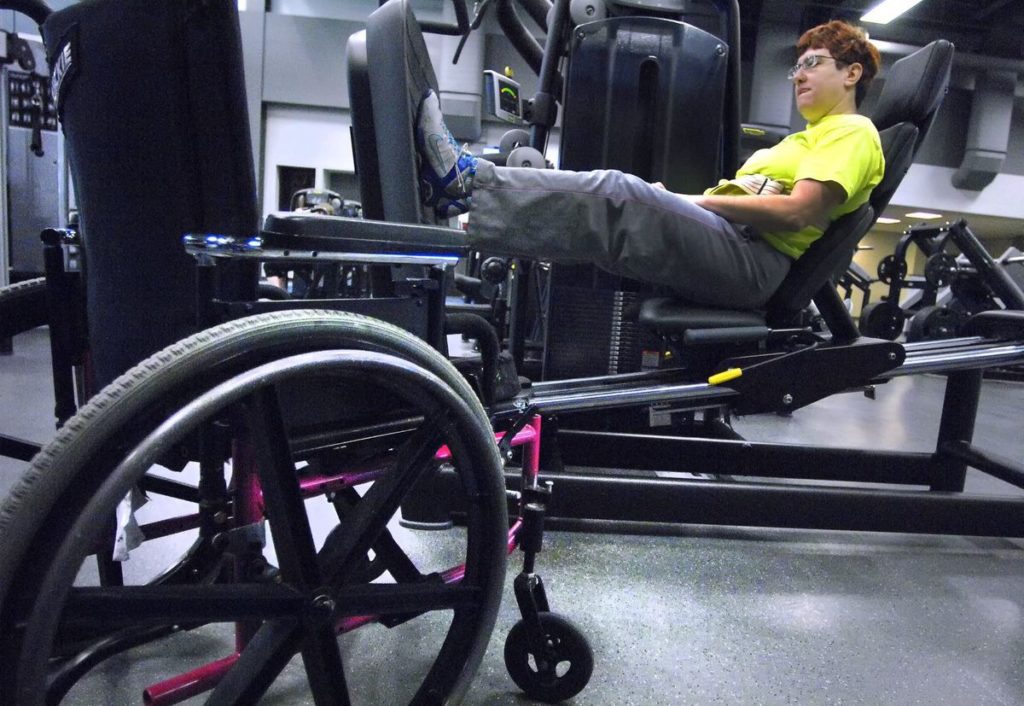Fitness Program for People with Disabilities Achieving ‘Unbelievable’ Results
BLOOMINGTON — An innovative private-public partnership to improve the health and fitness of people with developmental and intellectual disabilities and their support workers is achieving “unbelievable” results just seven months into the program, partners agreed Tuesday.
As a result, the Partnership for Health Pilot Program is looking for support to expand the medically supervised program.
“We are proving, even with this small group, that we can impact health care costs with fewer prescriptions and ER visits,” said Vern McGinnis of the McLean County Board for the Care and Treatment of Persons with a Developmental Disability, also known as the 377 board.
McGinnis and representatives of other program partners spoke with The Pantagraph after unveiling preliminary results and the expansion goal to 80 community leaders at the Advocate BroMenn Health & Fitness Center in the Center for Integrated Wellness, Bloomington.
Partners are the McLean County Health Department, Marcfirst (which provides programs for people with disabilities), Advocate BroMenn Health & Fitness Center, Advocate BroMenn Charitable Foundation and the 377 board. McGinnis is asking the community to donate $75,000 to the charitable foundation to help to maintain and expand the program.
The program began April 1 because people with developmental disabilities are three times more likely to have heart disease, stroke, diabetes and cancer than people without disabilities and die, on average, 25 years earlier, said Laura Beavers, health department behavioral health division manager.
Funding is coming from the 377 board, which is using money from a tax levy designated for individuals with disabilities, and from the Advocate foundation.
So far, 40 of 41 eligible Marcfirst clients and support people are participating. That’s 25 people with disabilities and 16 support people, said Marcfirst CEO Laura Furlong. The 41st person moved from the community.
According to Center for Integrated Wellness Executive Director Catherine Porter, no participant has dropped out of the program, and the endurance and mobility, social connectedness and mental health of all participants have improved.
Porter said the blood pressure of participants has decreased by 60 percent, heart rate and cholesterol levels have dropped by 50 percent, waist circumference has decreased or remained the same in 50 percent of participants and ER visits have declined.
“Family members have told us that their sons and daughters (in the program) are more engaged, more communicative and more alert,” Furlong said.
“To see this within seven months is unbelievable,” Beavers said.
Among program participants is Neysa Danilson, 46, who lives in a Bloomington apartment with Marcfirst support. Danilson, who has cerebral palsy and uses a wheelchair, told The Pantagraph earlier this year, “My goal is to walk without crutches.”
On Tuesday, during a break in her workout, she said, “I am being more steady on my feet.”
“She is able to do five squats without any assistance … and she walks across the gym with minimal support,” said fitness services supervisor Cody Haenitsch. “That’s a big step toward her goal to walk independently.”
“I love it,” Danilson said.

